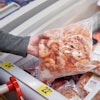SANTO DOMINGO, Dominican Republic (AP) — A Dominican official says Haiti erroneously reported that his country has an outbreak of avian flu when it cited the disease as a reason for imposing a ban this week on the import of Dominican meats, chicken, eggs and other goods.
Dominican Ambassador in Haiti Ruben Silie said in a statement on Friday that there's no evidence of bird flu in the country, which shares the Caribbean island of Hispaniola with Haiti. He added that the World Health Organization declared the Dominican Republic free of bird flu three years ago.
The Dominican Ministry of Agriculture also said that it hadn't received any notification from Haiti on the ban.
Haiti's Ministry of Commerce issued the indefinite ban on Dominican food imports this week following the death of five people.
Dominican health official Rafael Schiffino said on Tuesday that five people died, including two pregnant women, of swine flu, not avian flu.
Health authorities started this week to administer flu vaccines to pregnant women, senior citizens and children to avoid an epidemic.
Dominican government records show that the Dominican Republic sells 25 million eggs and 8 million chickens a year to Haiti, many of them in markets along the border.
The indefinite ban threatens Dominican businesses, said Manuel Escano, president of the Dominican Association of eggs producers.
If Haiti keep banning the chicken market, "we'll lose 75 million pesos (almost $2 million)," said Escano.
There was no immediate response from the Haitian government.





















